Augias | King of Elis

In Greek mythology, Augias or Augias (Greek, Ἀυγείας - "brightness") was a king of Elida and husband of Epicaste. Augias was one of the Argonauts.
He is famous for his stables, which held the largest number of cattle in that region and had never been cleaned - until the time of the great hero Hercules.
Augias' lineage varies in origins: according to Pausanias, he is the son and successor of King Elio of Elis, and he mentions as exaggerated the version that he is the son of the god Helios. Other authors mention him to have been the son of Helios and Nausidam, or of King Elio of Elis and Nausidam, or of Posidon, or of Forbas. His sons were Epicasta, Phileus, Agamede (the mother of Dictis with Posidon), Agathenes and Eurithus.
The fifth work of Hercules
The fifth of Hercules' jobs was to clean the stables of Augias in one day. This was seen as humiliating (rather than incredible, like the previous jobs) and impossible, since the cattle were divinely healthy (immortal) and thus produced an enormous amount of manure. But Heracles fulfilled it in one day, diverting the river Alpheus to wash the stables; and without doing anything that would disgrace him and make him unworthy of immortality.
In Pausanias' version, Augias had promised some prize to Heracles for the task, and Heracles diverted the river Menio.
In Diodorus Siculo's version, this is the sixth work (preceded by the expulsion of the birds from Lake Stymphalus, and followed by the capture of the Bull of Crete)
The value of this work has sometimes been questioned because the waters cleared the stables and because Heracles was paid.
War between Heracles and Augias
Augias was angry because he promised Heracles a tenth of his cattle if the stables were actually cleaned in just one day. He refused to fulfill this, and prepared for war: first he exiled his son Phileus, who had defended Heracles, then he sought to arrange allies, offering a part of the kingdom to the sons of Actor and to Amarinceus.
In the war that followed, Heracles was not able to defeat Augias by force, but through treachery: when the Corinthians proclaimed a truce, Heracles set a trap and murdered the sons of Actor. According to Diodorus Siculum, Heracles attacked a sacred procession that had left Elis for the isthmus of Corinth in honor of Posidon, and in this attack, near Cleona, Heracles killed Eurito, son of Augias.
Finally, Heracles took and sacked Élis with an army of Argives, Thebans, and Arcades, handing over his government and the prisoners to Phileus, which saved Augias' life. According to Diodorus Siculum, Heracles killed Augias. Next, Heracles headed against Élis' allies, Pilos and Pisa; he attacked Pilos, but was prevented from attacking Pisa by an oracle from Delphi.
Founding of the Olympic Games
Hercules then founded the Olympic Games:
" The games which by the ancient tomb of Pelope the mighty Hercules founded, after having vanquished Cleatos, divine son of Posidon, and vanquished also Eurytus, which he may have pulsated from the tyrant Augias against rewarding him for service rendered. "
Phileus' Reign
Phileus organized Élis, and returned to Dulikhion. Augias died of old age, and was succeeded in the kingdom by three kings: his son Agasthenes, and his sons-in-law Amphimachus and Thalpius, sons of Actor.
